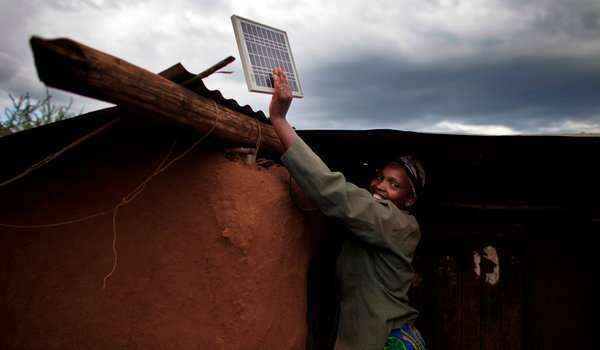
Solar Energy Lights African Huts and Changes Lives Far from the Grid
Katie Cordrey — December 27, 2010 — Eco
References: nytimes
Rural villagers are using tiny Chinese-made solar panels perched atop their homes to produce solar energy that lights their huts and provides small-scale electrical independence. As solar energy lights African huts, it also changes lives.
Because kerosene lamps can be abandoned, the risks of burns and harm to respiratory health are reduced. Students are able to study in the evenings, so their grades improve. Families save money on kerosene and are able to stay better connected with others because they can charge their cell phones. An added bonus is that this solar energy lights African huts without the need for an electrical grid.
Because kerosene lamps can be abandoned, the risks of burns and harm to respiratory health are reduced. Students are able to study in the evenings, so their grades improve. Families save money on kerosene and are able to stay better connected with others because they can charge their cell phones. An added bonus is that this solar energy lights African huts without the need for an electrical grid.
Trend Themes
1. Solar Panel Adoption - The increased use of small solar panels in rural areas is a trend that provides electrical independence and improves quality of life.
2. Energy Transition in Rural Communities - The adoption of solar energy in African huts represents a trend towards sustainable energy in remote areas, reducing reliance on traditional power sources.
3. Improving Access to Education - The use of solar energy to light huts enables students to study at night, leading to improved academic performance and educational opportunities.
Industry Implications
1. Solar Energy - The solar energy industry can explore innovative solutions and partnerships to cater to the growing demand for small solar panels in rural communities.
2. Renewable Energy - The renewable energy industry can develop cost-effective and efficient solar solutions to bring clean energy access to rural areas in developing countries.
3. Education Technology - The education technology industry can leverage the increased access to electricity in rural communities to create digital learning platforms and tools.
5.6
Score
Popularity
Activity
Freshness






 play_circle_filled
play_circle_filled









